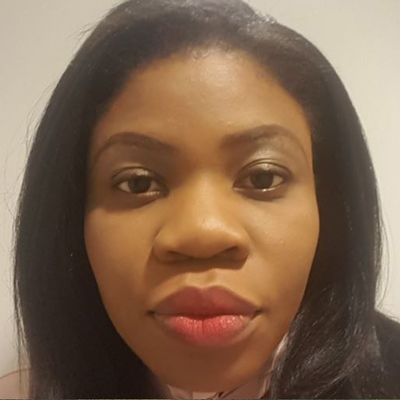If you're a fan of literary fiction, it is helpful to know more about the work you're reading than just the author and major themes. One element of literature that is often de-emphasized is the historical context in which a work was written.
Don't be confused by the setting of the work itself - where the characters live or what time period they were born in. This is often entirely different from the historical setting in which the work was written.
Consider, for example, George Orwell's classic, 1984. The book concentrates on politics, specifically, the atrocities of totalitarianism. It questions what, if any, benefits totalitarianism has on society and whether it is really a formidable outline for government. The setting of 1984 is, obviously, 1984, in a highly regulated and communal society. But when was the book actually written? 1950. The historical context was the Cold War and the high tension rising between world leaders at that point, specifically Lenin and Stalin. Orwell's ideas and message of 1984, a future setting, came from the historical events occuring around him.
You can see how historical context sheds light on what an author is hoping you'll pull from their work. You may enjoy Gulliver's Travels as a story, but when you realize that Jonathan Swift wrote it when Britain was undergoing a vast change of ideas about the role of government and deciding the importance of religion in society, the story takes on a entirely new life.
Understanding historical context through the progression of literary periods enhances old and new favorites to give you even more appreciation for the themes, characters, and confrontations you find within them.
Anglo-Saxon (Old English) Period: est. 450-1066 A.D.
* Beowulf
* Confessions by Saint Augustine
* The Ecclesiastical History of the English People by Bede
Middle English Period: 1066-1500
* Sir Gawain and the Green Knight by the Pearl Poet
* The Canterbury Tales by Geoffrey Chaucer
* Morality plays such as Everyman and The Second Shepherd's Play
The Renaissance Period: 1500-1660
* The plays of William Shakespeare
* Dr. Faustus by Christopher Marlowe
* "Astrophel & Stella" by Sir Philip Sidney
* The Faerie Queen by Edmund Spenser
The Neoclassical Period: 1660-1785
* Paradise Lost by Thomas Milton
* Pilgrim's Progress by John Bunyan
* "Two Treatises of Government" by John Locke
* Aesop's Fables (translated by Roger L'Estrange)
The Romantic Period: 1785-1830
* "Rime of the Ancient Mariner" by Samuel Coleridge
* The Hunchback of Notre Dame by Victor Hugo
* Frankenstein by Mary Shelley
* "Rip Van Winkle" & "The Legend of Sleepy Hallow" by Washington Irving (America)
* Short stories by Nathaniel Hawthorne and E.A. Poe (America)
The Victorian Period: 1830-1901
* Jane Eyre by Charlotte Bronte
* Great Expectations & A Tale of Two Cities by Charles Dickens
* Sherlock Holmes by Arthur Conan Doyle
* Poetry of Elizabeth Barret-Browning and Robert Browning
* Dracula by Bram Stoker
* "The Strange Case of Dr. Jekyll & Mr. Hyde" by Robert L. Stevenson
* Alice in Wonderland by Lewis Carroll
* Poetry of Alfred, Lord Tennyson
[American] Realism: 1830s-1900s
* Tom Sawyer & Huckleberry Finn by Mark Twain
* The Red Badge of Courage by Stephen Crane
* "An Occurrence at Owl Creek Bridge" & The Devil's Dictionary by Ambrose Bierce
* The Jungle by Upton Sinclair
* The Portrait of a Lady by Henry James
* War & Peace by Leo Tolstoy (Russia)
[American] Naturalism & [British] Edwardian Period: 1890-1910
* Of Mice & Men by John Steinbeck
* Short Stories of O. Henry
* The Call of the Wild by Jack London
* Jeeves & Wooster by P.G. Wodehouse (Britain)
* Heart of Darkness by Joseph Conrad (Britain)
* "Peter Rabbit" by Beatrix Potter (Britain)
* War of the Worlds by H.G. Wells (Britain)
Modernism: 1900-1950
* The Wasteland by T.S. Eliot
* The Sound & the Fury by William Faulkner
* Ulysses by James Joyce
* The Great Gatsby by F. Scott Fitzgerald
* A Room of One's Own by Virginia Woolf
* Short Stories by Agatha Christie (Britain)
* Poetry of William Butler Yeats (Ireland)
* Howard's End & A Room with a View by E.M. Forster (Britain)
* The Chronicles of Narnia & The Screwtape Letters by C.S. Lewis (Britain)
Post-Modern: 1950-present
* The Sun Also Rises & For Whom the Bell Tolls by Ernest Hemmingway
* Slaughter-House Five by Kurt Vonnegut
* Catch-22 by Joseph Heller
* The Handmaid's Tale by Margaret Atwood
* Waiting for Godot by Samuel Beckett (Ireland)
* The Lord of the Rings by J.R.R. Tolkien (Britain)
* One Hundred Years of Solitude by Gabriel Garcia Marquez (Columbia)
Contemporary Period (a continuation of Postmodernism): 1970-present
* On the Road by Jack Kerouac
* The Color Purple by Alice Walker
* Poetry of Sylvia Plath
* Poetry of Theodore Roethke
* Sandman by Neil Gaiman (Britain)
* His Dark Materials by Phillip Pullman (Britain)

Printer Friendly Version

